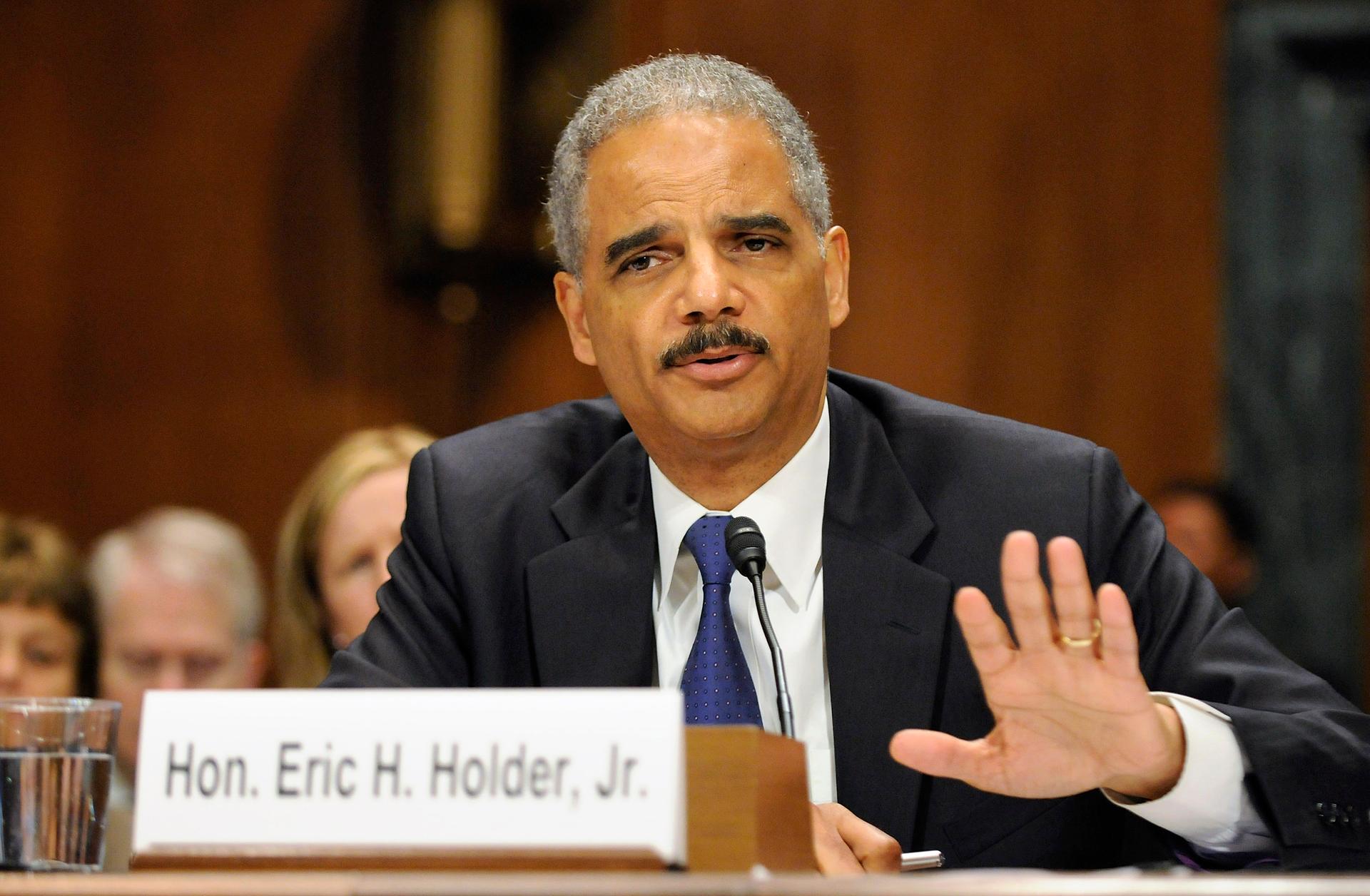Congress, Attorney General in stare-down over contempt, executive privilege
U.S. Attorney General Eric Holder testifies before the Senate Judiciary Committee on Capitol Hill in Washington June 12, 2012. (Photo by Jonathan Ernst/Reuters.)
President Barack Obama stirred partisan passions on Wednesday when he asserted executive privilege and declined to release to Congress any more documents related to the controversial Fast and Furious operation.
The decision came ahead of an expected contempt vote by the Republican-led House against U.S. Attorney General Eric Holder, the Democrat who many hold responsible for authorizing the operation that ultimately led to guns purchased in the United States being allowed to travel across the border into Mexico. At least some of those guns were ultimately tracked back to murders perpetrated by Mexican drug cartels.
Holder met with House Oversight and Government Reform Committee chairman Darrell Issa, R.-Calif., Tuesday night. After the meeting, Issa told reporters that Holder had failed to produce requested documents related to the failed Fast and Furious gun trafficking operation.
That led to Obama’s decision Wednesday morning to assert executive privilege — the first time his administration has done so. Obama’s administration said they have been more than forthcoming with the House oversight committee, noting they’ve provided thousands of documents, already, but declining to release correspondence between top Obama aides pertaining to the operation.
“We regret that we have arrived at this point, after the many steps we have taken to address the committee’s concerns and to accommodate the committee’s legitimate oversight interests regarding Operation Fast and Furious,” the Justice Department wrote in a letter to Issa.
Issa, speaking to The New York Times, however, raised doubts about whether executive privilege even applied here, especially because there’s no indication the communications being withheld involved the president himself.
Issa also objected to the fact that Obama himself had not transmitted a letter asserting executive privilege, nor had he provided a log of what was being withheld.
“Our purpose has always been to get the information the committee needs to complete its work — that it is not only entitled to, but obligated to do,” Issa said to the Times.
Democrats called on Republicans to slow down their drive to hold the attorney general in contempt while they consider the executive privilege claim and whether to challenge it in the courts.
According to the Washington Post, holding an executive branch official in contempt is rare, happening just 12 times over the past four decades. The attorney general, the nation’s top law enforcement officer, has never before held in contempt.
“The attorney general attempted to stave off Wednesday’s vote by meeting late Tuesday with leaders of the House oversight and Senate Judiciary committees to strike a deal that would have Justice hand over requested documents in exchange for the House panel dropping its plans to vote on contempt charges. But Issa declined the offer,” the Post wrote.
Issa said he saw no reason to delay the contempt vote. Should the committee find Holder in criminal contempt, the matter would move before the full House of Representatives. If that legislative body finds Holder in contempt, the matter would be referred to the Washington, D.C., U.S. attorney.
Interestingly enough, that man, Ronald C. Machen Jr., reports to the attorney general.
